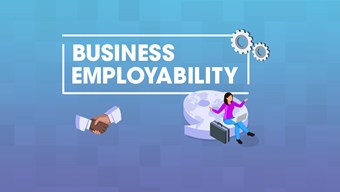According to 'Was the jury ever self-informing?', an exploration of the history of the jury system by legal academic Daniel Klerman, jurors in medieval England could include not only first-hand knowledge in their decision-making, but also rumour and hearsay.
By Editorial Team. Published 6 August 2013.
According to 'Was the jury ever self-informing?', an exploration of the history of the jury system by legal academic Daniel Klerman, jurors in medieval England could include not only first-hand knowledge in their decision-making, but also rumour and hearsay.
These days, of course, jurors are far more restricted in what they can consider, only being permitted to assess the case on the evidence before them in court. However, the advent of the internet and social media is threatening the modern status quo, as sites like Facebook, Twitter and even Google Street View increasingly tempt jurors to seek out more information than is legal.
Just last week two former jurors were brought before the High Court – one having been accused of commenting about the case he was trying on Facebook, the other having been said to have used Google to research evidence. Both could face jail terms if found guilty of contempt of court.
In the first case, Kasim Davey, 21, ‘spontaneously’ wrote a Facebook message after finding himself on a jury trying a sex offender following the Jimmy Savile scandal.
The message read: ‘Woooow I wasn't expecting to be in a jury Deciding a paedophile's fate, I've always wanted to F*** up a paedophile & now I'm within the law!’
In court last week, Davey claimed his decision to make the post was generated by "spontaneous surprise at the kind of case I was on – there was a lot of Jimmy Savile news at the time". He said that he was merely trying to ‘attract attention’, insisting he had no intention of prejudicing the case and had been considering the evidence carefully. ‘I didn't understand the implications. As far as I knew it was a general statement without naming anyone,’ he added.
The other juror, Joseph Beard, 29, who is alleged to have researched extra information about victims of an alleged fraud before passing this on to fellow jurors, maintained that he had simply been using the internet to assess how long the trial was going to last as he was under pressure to return to work.
The cases – which follow a host of other similar prosecutions – come just two months after a high profile study found widespread ignorance among jurors about restrictions on the use of the internet when deciding a case.
According to the research by University College London’s Faculty of Laws, nearly one in four jurors (23%) is confused about what he or she is allowed to do online. This uncertainty led some of the jurors surveyed anonymously by UCL to research the judge and lawyers in the case. Others have visited the crime scene on Google Earth or Street View, or shared their experiences on social media sites. Significantly, two thirds were unaware of previous prosecutions of jurors for such behaviour.
The research also found that some jurors are being over-cautious about their use of the internet. Of the 23% who did not understand the rules on internet use, 16% thought that they could not use the internet at all, even to check their e-mails. At the other end of the spectrum, 5% thought there were no restrictions at all and a further 2% believed they could research material on the case as long as it did not influence their judgment.
Future Lawyers Network followed up the findings by asking our readers for their thoughts via the University of Law's Facebook page. Most of the comments we received suggested that jurors should show more common sense.
One wrote: ‘There's only so many ways of saying ‘don't go on Facebook’. I would honestly question the intelligence and indeed the fitness of such a person to be a juror.’
Another added: ‘I completely agree! All this survey demonstrates is 23% of jurors are nosey, disobedient and can't keep their mouths shut!!’
And a further poster contributed: ‘If anyone has actually sat in on a case they will know the judge could not specify it more thoroughly that they are not to use social media. Those 23% are merely being ignorant.’
Their tone brought to mind a controversial call made earlier this year by top legal commentator Joshua Rozenberg for jurors' comprehension abilities to be tested before they are allowed to sit.
Certainly the proposal – which was made after the jury in the Vicky Pryce trial failed to reach a verdict after 15 hours of deliberation, and asked a number of questions that suggested it failed to understand its role – could help mitigate the disruptions being caused to jury trials by the internet.
However, for now the prevailing opinion seems to be that more can be done by judges to clarify to juries what they can and can't do. This was reflected in a poll we took of our readers, asking them: "A recent survey of jurors found that 23% were unclear about the rules regarding internet and social media use during a trial. Is it time for the rules to be clarified?"
Of the 25 responses we received, 92% said "Yes", 4% "No" and 4% answered "Don’t know".
As high profile legal journalist David Allen Green put it when disputing Rozenberg's suggestion that juries should be assessed in advance: ‘A criminal trial is not a spelling bee. It may well be that a juror's educational background is such that he or she may not be able to pass your proposed literacy test. If directions are not clear, then that frankly is the responsibility of the judges.’
Doubtless, though, as the evolution of the internet continues, this debate will run and run.



